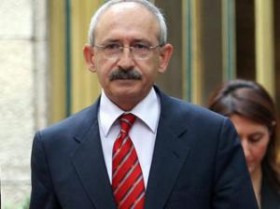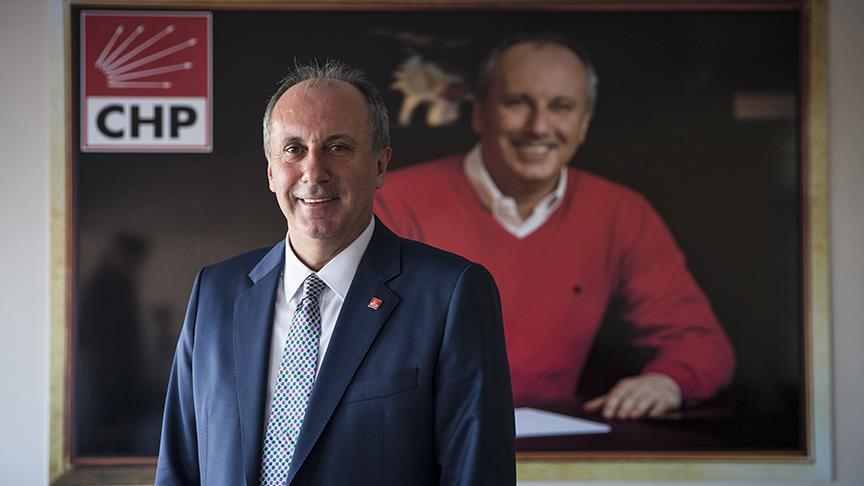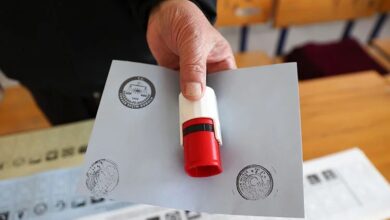Kemal Kılıçdaroğlu explained that why CHP didn’t take oath !
The main opposition leader Kemal Kılıçdaroğlu sent a letter to the international community and explained that why CHP didn’t take oath…
Kemal Kılıçdaroğlu exlained in the letter, which is sent to community, why HP didn’t take oath…
Here is the letter;
The results of the June 12 general elections in Turkey have now been finalized and officially declared. Members of the Parliament elected have been delivered their certifications prepared by the district election boards, documenting their election. Thus their status have been certified as deputies of the 24th session of the Turkish Parliament.
However, eight deputies thus elected are currently in custody due to ongoing court cases against them. Several of these MPs have been kept in arbitrary detention for more than 800 days. Some have appealed more than 50 times for their release, pending trial before the High Criminal Courts. These appeals have been rejected on the basis of cliché grounds that are not consistent with the criteria stipulated by the European Court of Human Rights.
In accordance with the Turkish Constitution, members of the Parliament are required to take an oath to begin their duties.
For the eight MPs to perform their duties in accordance with the will of the people, they need to be released from custody and come to the Parliament to take their oath as other deputies.
Members of the Turkish Parliament enjoy immunity by law. However, as their trial began before they got elected to the Parliament, the eight deputies in question are not to enjoy immunity regarding their cases in progress.
Moreover, CHP has already stated its position regarding the immunity rights of MPs, declaring that such immunity was far too extensive. CHP proposed and made a commitment to our people to revise the immunity arrangements for MPs and to bring them in line with the practices of democratic countries. In these countries, immunity rights are limited to a level only to allow the MPs to perform their political functions.
The eight deputies, following their election, requested from the Courts their release from custody. However, these requests were rejected by the Courts on such unjustified grounds as “the evidence related to the case have not yet been gathered”, – something for which the accused can surely not be held responsible. The High Criminal Court rejected a second appeal and agreed with the decision of the Courts of the first instance and kept them in custody.
Thus, the right to hold public office for these eight parliamentarians duly elected by the people and their right to assume their political duties have been blocked by the special courts – a product of the military coup of 12 September 1980.
The essential point to note here is that none of these eight MPs have been convicted in the ongoing cases that led to their detention.
Another important point to note is that these MPs are not seeking to take advantage of their immunity as deputies, but are only wishing to take their oath to begin their term and their duties as members of Parliament.
These MPs do not object to the continuation of their trial and the completion of the judicial process. However, as they have not been convicted of any crime, they do wish to exercise the duties of their public office and answer to the people who elected them. The court rulings in question are blocking this process.
It is clear that the rulings of the Courts in question are in contradiction of Article 5 of the European Convention of Human Rights (ECHR) concerning “deprivation of liberty” and Article 3 of its Optional First Protocol concerning “the right to vote and be elected”. The detention in remand of the eight deputies was unlawful even before they were elected and does not comply with ECHR criteria. Numerous judgements of the ECHR finding a violation of the Convention are ample evidence of the unlawfulness of their detention. The court rulings are also in contradiction of the jurisprudence on the right to vote and be elected of its Optional First Protocol, and all the jurisprudence of the European Court of Human Rights on the basic rights and issues such as prolonged arrest and detention periods, insufficient reasoning, cliché decisions, catalogue crimes, lack of provision of legal protection measures, failing to hold a hearing.
This situation in Turkey is also in consistent with articles 2 and 25 of the United Nations International Covenant on Civil and Political Rights (UN ICCPR), related to the discrimination of the right to participate in political life.
Considering the fact these eight MPs have not been convicted of any crime to date, the charges and allegations against them and their continued arbitrary detention constitute a violation of “their right to be presumed innocent until proven guilty” as enshrined in article 14(2) of UN ICCPR and article 6(2) of ECHR.
CHP had often warned that as a result of the constitutional amendments following the referendum of 12 September 2010, the separation of powers, already undermined, had been further jeopardized by bringing the judiciary under the control of the executive.
In this particular instance, the citizens who have been rightfully elected Members of the Parliament have been obstructed by the judiciary from undertaking their duties. The case clearly demonstrates the distortion and the imbalance in the separation of powers in the country to a point where the functioning of even parliamentary democracy in Turkey is impeded.
As CHP, we will continue to pursue the case in the parliament with utmost attention and care, to ensure respect for the citizens’ right to vote and to be elected and the security of legislative activities in order to protect democracy and the rule of law in Turkey.
[adrotate group=”9″]




